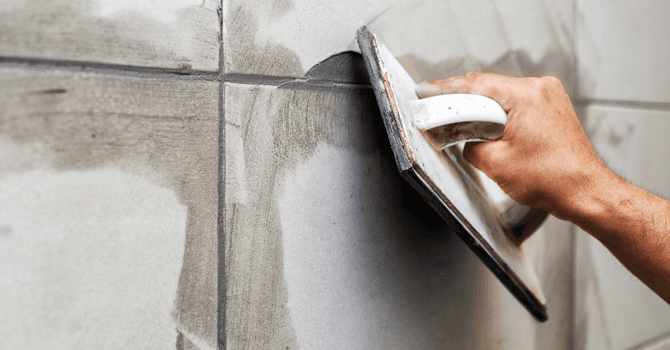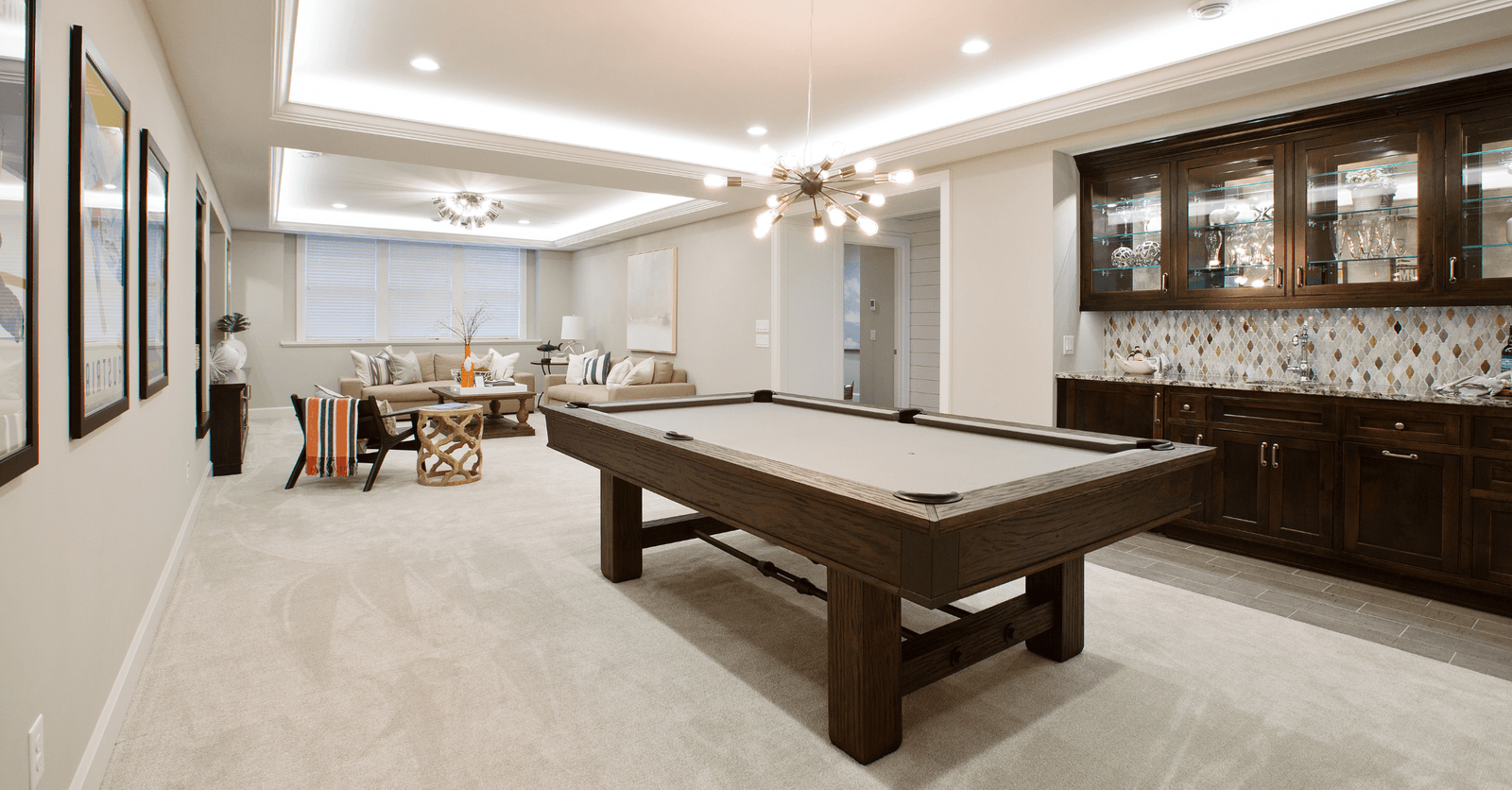What are the best industrial flooring materials?
By Editorial Team
Updated on November 8, 2023

If you’re considering taking on the lease of a commercial property to fulfill a business dream or open a community space, then it’s likely you’re thinking about all angles of the interior design process. Unlike a home, a commercial or industrial space has to comply with certain challenges and restrictions.
This is especially true when it comes to flooring, as commercial spaces usually deal with higher traffic than our homes do. For this reason, the credentials for choosing an industrial flooring material rely heavily on durability as well as bounce back from wear and tear.
So, what are the best industrial flooring materials on the market? We’re here to offer a break down so you can make an informed decision that’ll both fit the interior decor while functionally holding up.
The best industrial flooring materials
Concrete

Source: Canva
Industrial concrete is a widely adopted option when it comes to commercial spaces. This is as a result of its versatility and durability. Although concrete is generally used in the construction of roads, it more recently begun trending for business interior. In recent years, various commercial spaces including cafes, shops, restaurants and hair salons have embraced the minimalist concrete aesthetic. Concrete is known for its intense durability, with an excellent threshold for pressure.
The options for industrial concrete floors comprise of it either being built on grade or suspended on metal decking. Polished concrete is a popular option for warehouses, restaurants and larger stores. There are a variety of finishes of polished concrete to choose from, and this is why it’s making its way into even the most modern of interiors.
Quarry Tile

Source: Canva
Tiles are quite versatile in terms of flooring and quarry tile is proven to hold up in commercial and industrial settings. Especially true for industrial kitchens, quarry tile is an excellent choice for a constant buildup of dirt and grease, as well as foot traffic. Quarry tile is made from hard-fired clay and offers all the same benefits as porcelain tile but at a much less expensive price point. Tile maintenance is very straightforward, as this material is easy to clean and resilient.
A very important note to include when it comes to tiles is that installation is key. Tiles will last exceptionally longer if they’re correctly installed, so do consider working with a professional if you’re choosing to go the quarry tile route.
Epoxy

Source: Canva
An epoxy floor is tried and true when it comes to industrial and commercial flooring materials, as it is a cost-effective option. It has the right balance of durability and aesthetic sensibility, a smooth surface without being slippery which means that they can be used in factories, warehouses as well as in retail spaces and restaurants.
Further, epoxy floors are non-porous, meaning that dirt and mold are unable to penetrate the surface, contributing further to this material's popularity. As with tile, the installation process for epoxy flooring is paramount to how well it performs. Thus, if you choose epoxy, we’d recommend hiring a professional to install them.
Rubber

Source: Canva
Rubber is an industrial flooring option that offers comfort as well as safety for environments where people may be on their feet for long periods of time. Unlike many other industrial flooring materials, rubber does not use concrete as it’s base. However, it remains slip, fire and water-resistant.
We should mention that rubber flooring can be susceptible to staining, and thus, needs much more maintenance than some of the other options. Also, rubber can be one of the most expensive materials, but is a durable option.
Vinyl

Source: Canva
Vinyl is a mass-produced industrial flooring material that is on the less expensive end of the scale. Not only is vinyl flooring cheap, but it’s fairly easy to install and maintain. Like rubber, vinyl flooring is comfortable under foot so it’s an excellent option for commercial settings such as retail spaces, cafes and restaurants.
Some forms of printed vinyl can wear with time and this noticeable damage may be difficult to deal with without replacing the surface of the flooring itself. In contrast, solid vinyl and vinyl composite won’t fade with wear. Thus, we’d suggest going with one of the latter options if you’re dealing with heavy foot traffic in your industrial space.
Looking for more information about how to take on a flooring renovation? Check out our detailed article Floor renovation project: checklist of steps to follow.
source: Amanda Farmhouse Decor
Get 3 quotes for your industrial flooring project
RenoQuotes.com will put you in contact with 3 reliable contractors for your floor renovation project. Fill in the form on our homepage (it only takes a few minutes), and you will receive quotes from trusted professionals.
Dial 1-844 828-1588 to speak with one of our customer service representatives.
Looking for something else?
Related articles
The latest industry news, interviews, technologies, and resources.

Editorial Team
•08 Nov 2023
When properly installed, ceramic tiles are a beautiful resurfacing option. The complexity of a tiling project lies not so much in the execution but in the details required to do it right.

Cynthia Pigeon
•17 May 2024
Are you planning on renovating or building a basement, and have some questions about ceiling heights? Keep reading to get just the information you are looking for!

Editorial Team
•08 Nov 2023
There’s no beating around the bush, toilets are the thrones of the home. These fixtures are an important aspect of the overall comfort, and thus choosing the right one makes a huge difference.

Christine Simard
•10 Jan 2025
There are endless options when choosing a kitchen countertop, but marble is a very sought-after material in the design industry. It’s ever-present on our minds when renovating a kitchen due to its chic, timeless, and versatile appeal. However, some might find its minimalistic look too common, overdone maybe, when designing a new kitchen.

Editorial Team
•08 Nov 2023
Although modern kitchen faucets are well-built and designed, they aren’t invincible, so don’t be alarmed when a fault occurs.